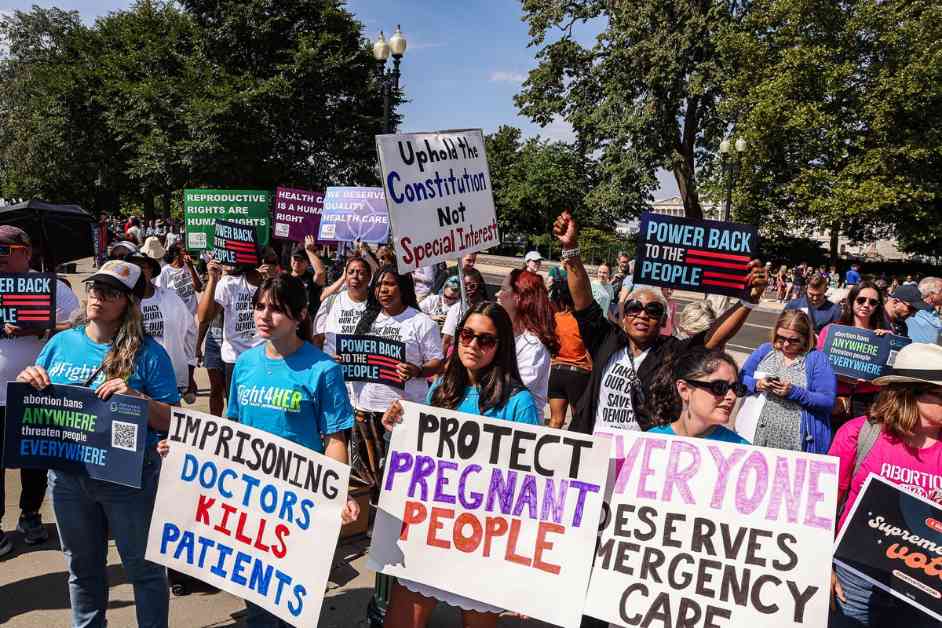Following the historic ruling of Roe v. Wade, the topic of abortion continues to be a major concern for many voters. The GOP has long been associated with efforts to restrict abortion rights in the United States. However, the party now finds itself at a crossroads, torn between a base that demands stricter limitations on reproductive health care and a more moderate majority that does not share the same views.
Despite this internal conflict, Republicans cannot seem to avoid discussing the issue of abortion. The Supreme Court’s decision in 2022 to overturn Roe v. Wade, which was considered a significant victory for abortion opponents, has actually led to a decline in public support for their cause. Recent surveys show that a majority of American adults identify as “pro-choice” rather than “pro-life,” marking a shift in attitudes over the past three decades.
While some conservatives are pushing for restrictions on birth control and fertility treatments, the tide is turning in favor of abortion rights. A survey of women voters revealed that Democrats are more likely than Republicans to prioritize abortion as the most important issue in their decision to vote for a president. This shift could have implications for the upcoming elections, especially in battleground states like Arizona and Nevada.
Despite efforts by Republicans to downplay the issue of abortion on the campaign trail, it remains a significant topic of discussion. Former President Donald Trump, who has changed his stance on abortion over the years, recently advised lawmakers not to shy away from the issue. In states like Arizona and Nevada, Republican candidates are adjusting their positions on abortion to align with public opinion.
The Supreme Court’s recent decision to allow emergency abortions in Idaho has kept the issue in the spotlight. Justice Ketanji Brown Jackson criticized her colleagues for delaying action on the issue, highlighting the challenges faced by pregnant individuals in emergency situations. The survey also found overwhelming support for preserving access to abortion in cases of pregnancy-related emergencies.
While the push to redefine reproductive health care post-Roe v. Wade continues, both abortion opposition groups and Democrats are leveraging the Republican Party’s discomfort with the issue. Democrats are highlighting Republicans’ reluctance to address reproductive health care issues, using it as a point of contention in the upcoming elections.
Overall, the issue of abortion remains a key topic in the political landscape, with implications for both parties as they navigate their positions on reproductive health care. Despite efforts to shift the focus to other issues like the economy, Republicans are unlikely to escape scrutiny on this contentious topic. As the debate continues, it is clear that abortion will remain a significant issue in the public discourse.






